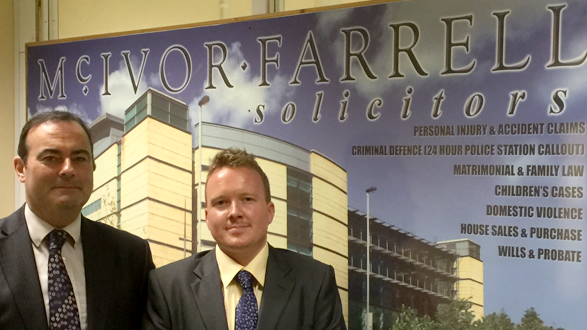 Mr McCord’s case is that the British Government ceded some of its sovereignty to Northern Ireland through the enactment of the Good Friday Agreement and the Northern Act. Moreover, it is pleaded that the people of Northern Ireland are sovereign in relation to Constitutional change and only through the mandate of the people of Northern Ireland can Constitutional change come about.
Mr McCord’s case is that the British Government ceded some of its sovereignty to Northern Ireland through the enactment of the Good Friday Agreement and the Northern Act. Moreover, it is pleaded that the people of Northern Ireland are sovereign in relation to Constitutional change and only through the mandate of the people of Northern Ireland can Constitutional change come about.
Senator George Mitchell, who managed the Good Friday Agreement negotiations, when recently asked if Brexit was a breach of the Good Friday Agreement, said that the deal;
“plainly contemplates the possibility of a vote under certain circumstances that change Northern Ireland’s constitutional position… The agreement plainly provides that the political status of Northern Ireland can be determined or changed only through a vote – and it’s the informed consent through a vote – of the people of Northern Ireland…”
Clearly, Senator George Mitchell agrees with the core argument that has been made in Mr McCord’s case.
On Friday 28 October 2016 Belfast High Court delivered judgement in relation to Mr McCord’s case and that of the cross-party group of politicians. The court did not find in favour of either case.
Despite the fact that the court did not find in Mr McCord’s favour, we believe that it is significant that the court stated the following in the course of judgment;
“…this does not mean that a first level judge is free to disregard the doctrine or sweep it away [the doctrine of parliamentary sovereignty]. If that task is to be undertaken it will fall to the highest court to do so…”
We agree with the court’s view that the issues raised in Mr McCord’s case are matters for the highest court. In this regard, the fact that the court did not find in our favour was of no surprise to us. The High court in Belfast is bound by precedent (that is existing law).
No single precedent exists that categorically proves or disproves Mr McCord’s case. Therefore, it can be said that Mr McCord’s case is complex and ground-breaking. We have always been of the view that this matter must be put before the Supreme Court in London, as the Supreme Court is not bound by Precedent and has the power to make new law.
Provisional dates have been set for the Supreme Court in early December.
Ciaran O’Hare (Solicitor)


